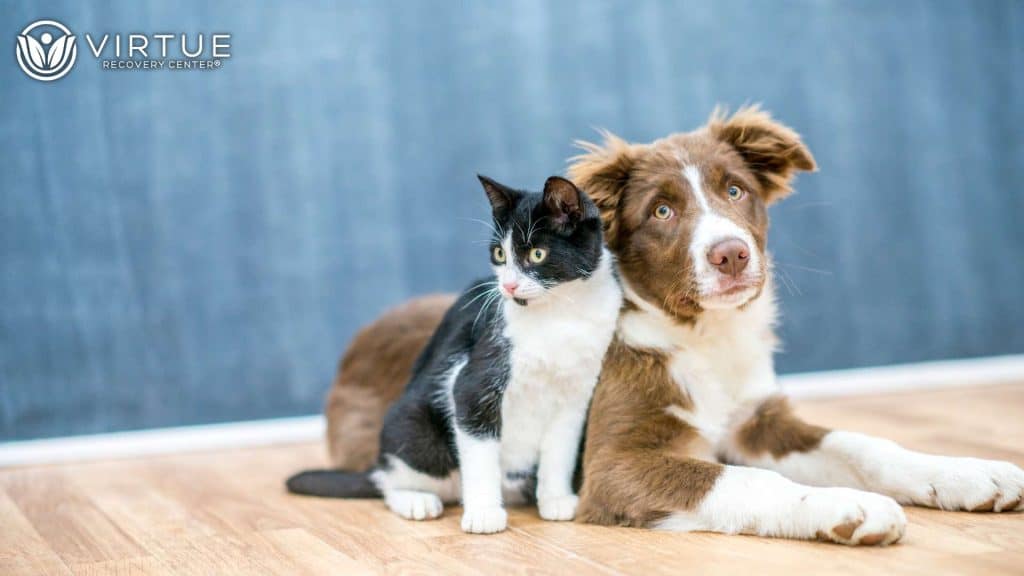Key Takeaways
-
Marijuana and cannabis products can be toxic to cats and dogs.
-
Pets may be harmed by eating edibles, inhaling smoke, or ingesting dried marijuana.
-
Symptoms include wobbly walking, vomiting, low energy, or acting strangely.
-
If your pet is exposed, call your vet or a pet poison hotline immediately.
-
Safe cannabis storage and responsible use protect your pet’s health and well-being.
Introduction
As marijuana becomes legal in more states, more people are using it for medical or recreational purposes. But while weed may help some people, it can be dangerous for pets.
Cats and dogs are much smaller than humans. Their bodies react differently to the ingredients in marijuana—especially THC, the chemical that causes a high.
Sadly, veterinarians are seeing more cases of pets getting sick after being exposed to marijuana. Sometimes it’s by accident. Other times, it’s because people didn’t know the risks.
This article will help you understand why marijuana can be toxic to pets, how to recognize the signs, and what to do if your cat or dog has been exposed.
How Can Cats and Dogs Be Exposed to Marijuana?
Pets are curious. They explore the world with their noses and mouths. That’s why it’s easy for them to get into things they shouldn’t.
Common ways pets are exposed to marijuana include:
-
Eating marijuana edibles (like cookies, brownies, or gummies)
-
Chewing dried cannabis leaves or buds
-
Inhaling secondhand marijuana smoke
-
Licking or biting cannabis oils or tinctures
-
Getting into trash that contains used cannabis products
Even a small amount can make a pet very sick. And with edibles, chocolate or xylitol (both toxic to pets) make the situation even worse.
Why Is Marijuana Toxic to Pets?
Marijuana affects the brain through cannabinoid receptors. These are found in both humans and animals. But cats and dogs have more of these receptors—especially in their brains.
That means THC (tetrahydrocannabinol), the part of marijuana that causes a high, has a much stronger effect on pets. It changes how their brain and body work, even in tiny amounts.
Some people think CBD is safe for pets. While CBD (cannabidiol) is less dangerous than THC, it can still cause side effects if the product also contains THC or other unsafe ingredients.
Forms of marijuana that can cause toxicity in pets:
-
Dried flower or bud
-
Vape cartridges
-
THC oils and concentrates
-
Edible treats
-
Marijuana-infused butter or oil
-
Secondhand smoke from joints, pipes, or bongs
Signs and Symptoms of Marijuana Toxicity in Cats and Dogs
If your pet has ingested marijuana or breathed in secondhand smoke, symptoms may show up within 30 minutes to a few hours.
Common symptoms include:
-
Loss of balance or wobbliness
-
Lethargy (low energy or seeming “out of it”)
-
Vomiting
-
Drooling or lip smacking
-
Glassy or dilated eyes
-
Trembling or muscle twitching
-
Trouble standing or walking
-
Slow heart rate or body temperature
-
Acting nervous, agitated, or confused
-
In severe cases: seizures, coma, or unresponsiveness
If you notice any of these signs—and think your pet may have gotten into weed or cannabis products—don’t wait. Call your veterinarian or the Pet Poison Helpline right away.
What Should You Do If Your Pet Is Exposed to Marijuana?
Time matters. The sooner your pet gets help, the better the chances for a full recovery.
Steps to take if you suspect marijuana exposure:
-
Stay calm—your pet needs you to think clearly.
-
Call your vet or the Pet Poison Helpline.
-
Do not induce vomiting unless a vet tells you to. Some marijuana products can cause choking or worsen symptoms.
-
Tell the truth about what your pet was exposed to. Vets are there to help—not to judge.
-
Follow your vet’s instructions carefully. They may recommend bringing your pet in for treatment.
Don’t wait for things to get worse. Pets can crash quickly after marijuana ingestion or smoke exposure.
How Is Marijuana Toxicity Treated in Pets?
Luckily, most pets recover with supportive veterinary care. But in some cases, treatment needs to happen fast.
Veterinary treatments may include:
-
IV fluids to help flush toxins out
-
Activated charcoal to prevent further absorption
-
Monitoring of heart rate, breathing, and temperature
-
Anti-nausea medications
-
Warming or cooling techniques if the body temperature drops or spikes
-
Oxygen therapy or seizure control, if needed
Recovery usually takes 12 to 72 hours, depending on how much marijuana the pet ingested and how quickly they got help.
How to Prevent Marijuana Exposure in Pets
You love your pets like family. Keeping them safe from marijuana starts with smart, simple habits.
Tips to protect your cats and dogs:
-
Store all marijuana products in sealed containers, out of reach.
-
Never leave cannabis edibles or weed around unattended.
-
Do not smoke marijuana around your pets—secondhand smoke is harmful.
-
Be careful with trash that might contain cannabis or food wrappers.
-
Educate guests, roommates, or family members about pet safety.
-
Keep emergency numbers for your vet or poison control visible.
A few simple steps can prevent a scary situation—and maybe even save your pet’s life.
What Pet Exposure Says About Broader Marijuana Use and Responsibility
Marijuana is legal in many places. But with legal use comes personal responsibility—especially around children and animals.
If you find that substance use is making it harder to care for your family, home, or pets, you’re not alone. Many people struggle with managing drug or alcohol use, especially when it starts affecting relationships, health, or safety.
If you’re using marijuana more than you want to—or if you’re worried about how it’s affecting your life—there’s help.
At Virtue Recovery Houston, we offer compassionate support for those facing substance abuse or mental health challenges. Whether it’s marijuana, alcohol, or another substance, you don’t have to face it alone.
Conclusion: Keep Pets Safe and Loved
Cats and dogs count on us to keep them safe. While marijuana may be helpful to some people, it’s not safe for pets in any form.
If your pet is ever exposed to cannabis—call your vet right away. And if marijuana use is becoming hard to control, you deserve help, too.
To speak with a caring recovery expert, call Virtue Recovery Houston today at 713-234-6254.
We’re here for you—and your loved ones, two-legged or four.
Can Medications that Cause Kidney Damage Also Affect How Marijuana Impacts Cats and Dogs?
Medications, particularly those categorized as drugs linked to kidney damage, may alter how marijuana affects pets. When pets are on these medications, their kidney function could be compromised, potentially increasing the risk of adverse reactions to marijuana. Pet owners should consult veterinarians before introducing cannabis products to their furry friends.








